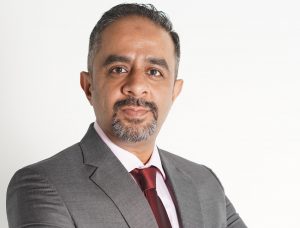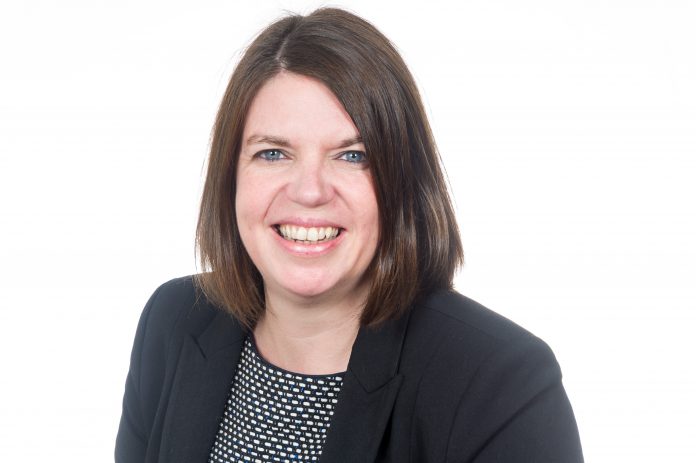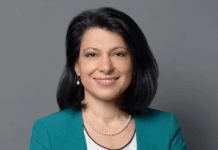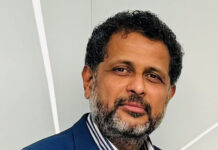Have investment figures emanating from the GCC grown in recent years, both in terms of individual investors and size of commitments?
Faizal Bhana (FB): Jersey’s long-standing relationship with the GCC means that business flows have grown steadily, but also diversified. Jersey, for instance, has long been a centre for supporting private and family wealth strategies for families in the GCC. However, in recent years, we’ve seen a growing appetite to engage in alternative funds – particularly real estate, private equity and infrastructure. A good example of that was the Jersey-domiciled Ethos Invest Fund – a £1bn fund that became the first Shari’a compliant tech focused private equity fund on launch last year.

What are the main factors motivating investors from the GCC to locate investments in non-regional IFCs?
FB: First, GCC investors are looking to diversify into new geographies, such as Europe and the US, and emerging sectors, such as alternative assets and digital assets. To do that, they need specialist expertise, the sort of expertise offered in other IFCs like Jersey.
In addition, investors in the GCC look to other jurisdictions to avail themselves of the stability they offer, in particular in cases where their foremost objectives are asset protection and long-term succession and legacy planning.
An Kelles (AK): Such requirements have further accelerated due to the impact of Covid whereby the ability to transact seamlessly remotely became imperative while the outlook towards investment priorities shifted further towards socially conscious principles.
In most cases, strategies involving non-regional IFCs are complementary to their domestic arrangements.
Do investors from the Middle East into IFCs such as Jersey, request any unique investment requirements or trends, distinguishing them from those from other regions?
FB: With an estimated $1 trillion in assets expected to be transferred between generations globally in the coming decade, it is fair to say that one distinct trend we are seeing is a shift in attitudes and priorities as the Nextgen comes to the fore.
This assertion was recently borne out in a study we commissioned, ‘Global Attitudes to Islamic Wealth Management’ which set out to understand the views of Muslim family offices and high net worth individuals on Shari’a compliant and ethical wealth management services. That report highlighted that while fundamental principles such as philanthropy remain incredibly important, some attitudes toward Islamic finance wealth management are evolving across the generations; different generations within a family sometimes have conflicting motivations, interests, and ideas on how to resolve problems.
AK: That provides some interesting challenges and considerations for advisers. Religious injunctions, for instance, are never far from Muslim thinking. Notably 96% of respondents to that study stated they would always choose a Shari’a compliant investment – even if the performance was inferior to an equivalent conventional investment How one interprets those requirements in the modern era can often vary enormously – even within families and indeed in IFCs supporting those families.
Are you witnessing considerations such as ESG influencing the investment decisions coming from Middle Eastern investors?
FB: In recent years our services in the GCC have certainly diversified and we are seeing an increase in ESG considerations. It’s something that particularly resonates with the next generation of millennials and female business leaders who are making more and more business decisions regarding GCC corporate and family wealth management.
AK: Certainly, the pandemic has accelerated this trend, but it’s one that was in train before too. In this respect, we like to think Jersey is ahead of the curve. Last year we rolled out an ambitious sustainable finance strategy with the aim of positioning Jersey as the leading IFC for sustainable finance in the markets it operates in by 2030.
Combined with our deep history of supporting business in the region, we see ourselves as having a pivotal role to play in enabling GCC wealthy families and investors to realise their sustainable investment goals and ultimately make a difference in a broader sense to society.
How do Shariah compliant investment options in other IFCs compare to those available in the Middle East?
FB: Jersey has been working closely with countries in the region for many years and, in fact, just last year celebrated a decade of having a presence in the GCC. As such, we have long been alive to the need to provide expertise in Shari’a compliant services and have developed Islamic finance expertise to complement that found in the GCC region itself.
Interestingly, though, what came across strongly in our latest research was that Muslims are not homogenous in their attitudes towards non-Shari’a compliant products. Many see Shari’a compliance as a framework for investing but not always exclusively. Investments that are not certified Shari’a compliant are often seen as acceptable to investors as long as they do not actively contravene Shari’a principles. Jersey has taken this on board, to offer optionality to GCC investors and enable them to pursue a strategy that they are comfortable with and that meets their values.
It’s significant that over half of respondents to our study stated it was important for jurisdictions to develop their own codified approach to ethical finance as a way to support the expansion of their product exposure beyond Shari’a compliance alone. In this respect, Jersey’s Shari’a compliant offering combined with its standing as an international hub for cross-border investment should stand it in good stead and is in no small part why the jurisdiction remains attractive.
What should Middle East based investors look for when deciding to work with any particular IFC?
FB: While Middle East based investors still place value on the cornerstones of reliability and stability backed up by a comprehensive infrastructure in the IFCs they work with, they will also increasingly look to jurisdictions with a forward-thinking approach when it comes to ESG and digital innovation.
Jersey can answer well on all scores. There are few, if any, IFCs of our stature that can offer a dedicated workforce of almost 14,000 professionals and the depth and breadth of experience and expertise that Jersey has developed.
AK: We are proud, for example, that we have been able to provide international investors with cutting-edge secure, remote, digital services throughout the pandemic, backed up by what is now officially the fastest broadband in the world. When combined with our forward-focused approach to ESG and our firmly established ties to the region, we hope investors will continue to see Jersey as a jurisdiction of choice that can complement their domestic structures.











